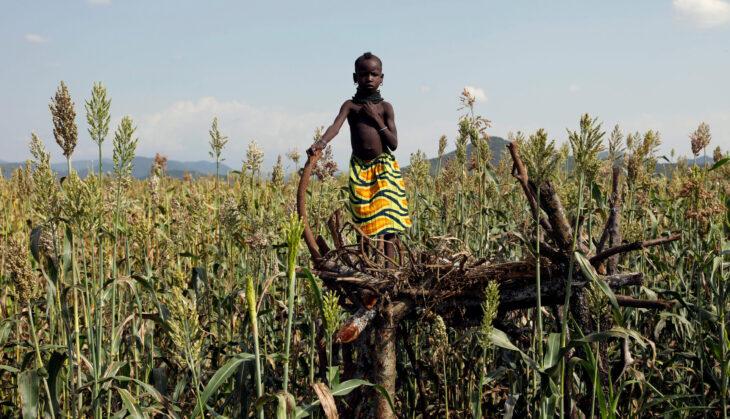Africa-Press – Mauritius. In the early months of COVID-19 this past spring, NGOs and news outlets predicted dire outcomes in Africa. The disease would kill millions. Governments and health systems would be unprepared. But this is not what happened.
As of September 2020, the African continent as a whole has reported 1,460,084 COVID-19 cases, resulting in 35,445 deaths, with most of these cases concentrated in southern Africa.
In the US, a much smaller landmass with only a quarter of Africa’s population, over 7,059,087 cases have been recorded, resulting in over 204,000 deaths.
West and Central Africa have had particular success at stemming the rate of infection. COVID-19 cases in West Africa hover around 175,000, and Central Africa has just 57,000 cases, with around 35,000 deaths on the continent overall.
Protocols put in place in the wake of the 2014-2016 Ebola pandemic have helped staunch the flow of infection in West and Central Africa. Face masks, for example, were made compulsory across much of the region by early April.
Other measures targeted food distribution to help vulnerable populations mitigate food insecurity. So why can a major pandemic be prevented, but not other life-threatening problems like hunger and poverty that have been around for far longer?
Like disease, food security discourse is often infused with stereotypes about so-called “African limitations”. Africans are portrayed as incapable of producing enough food to feed growing populations.
Antiquated agricultural techniques, droughts, and violence are often blamed. Proximate explanations tend to blame the poor for their struggles. While these shocks may act as the proximate pushes that force vulnerable populations to go hungry, they tell us little about the ultimate causes of poverty and food insecurity.
Proximate explanations tend to blame the poor for their struggles. I heard them repeated again and again during a visit to a USAID office in southern Africa in 2015.
The director was a white South African man who had fled Black democratic rule after apartheid ended. He expressed frustration with how African farmers refused to grow the crops recommended by experts, saying, “Sometimes they just don’t want to be helped.
” This moment stuck out to me, because it was a very different narrative than I had uncovered during many years of fieldwork in West Africa.
The farmers I interviewed were hyper-aware of the multiple crop varieties, economic trends, and microenvironmental conditions that would help them predict failure or success.
They balanced all of those risks and more on a daily basis, because failing to do so meant their families would not have enough to eat. My upcoming book, The Scarcity Slot: Excavating Histories of Food Security in Ghana, is based on nearly 20 years of studying how African foodways have changed over time.
I argue that the history of Africa is full of alternate storylines that challenge us to rethink food security today. Five hundred years ago, people in west central Ghana managed to support considerable populations during the most severe drought on record in a millennium.
They did so by relying on indigenous, drought-tolerant grains like pearl millet instead of high-yielding imports like maize. This case reminds us that “produce more” approaches to agricultural development are often the wrong approach to drought.
Chronic food insecurity became much more severe with European interventions, in both the central Ghana case that is the center of my book, as well as northern Nigeria, Malawi, and as far afield as India.
In the 17th and 18th centuries, the trans-Atlantic slave trade depopulated many regions of west and central Africa of skilled agricultural labour, effectively transferring this wealth in people to the slave plantations of the Americas.
Colonial governments across the continent further globalised local agricultural economies by focusing on export cash crops at the expense of subsistence production from the late 19th through mid-20th centuries.
While many independent African nations like Ghana developed nationalist programs to increase food production in the 1960s and 1970s, structural adjustment programmes of the 1980s forced these countries to double down on producing cash crops that gave them a competitive edge in the global food market.
The United Nations is predicting dire food outcomes in Africa as a result of COVID-19, despite the fact that most countries in the continent have effectively mitigated the spread of the disease.
Colonial and structural adjustment programs have resulted in the continent importing about 85% of its food supply between 2016-2018. Global economic recession means higher food costs and a smaller market for African exports.
Yet again, Africans will have to bear the brunt of the impact of mistakes made a world away. The first step in making these big changes is acknowledging the historical processes that created food insecurity.
A focus on the short-term causes of disease and food insecurity have led to short-term solutions. The key to addressing both is to invest in long-term structural change in addition to short-term stop gap measures.
While procedures put in place during the Ebola pandemic have greatly reduced the spread of COVID-19, a lack of parallel investments in African health infrastructure means that COVID-19 patients may not get the care they need.
Similarly, increasing food production through increased agricultural inputs may help in the short-term, but significant interventions in the food system at national and global level are necessary to make long-term changes.
The first step in making these big changes is acknowledging the historical processes that created food insecurity. Understanding the processes at the root of the problem can possibly prevent the same structures of inequality from emerging in the future.
Exploitation is at the heart of Africa’s food problems and has been for centuries, ever since Black people were viewed as less than whites. Stereotypes of Black inferiority connect the physical violence against Black bodies in the US to the more indirect forms of violence that lead millions to suffer chronic hunger across the African continent.
To solve the world’s most pressing problems, it is essential to be willing to pursue radical structural solutions, as indigenous food sovereignty movements have proposed.
Food sovereignty advocates rely on local indigenous knowledge and sustainable agroecological techniques, and promote political and economic control over one’s own food resources.
For More News And Analysis About Mauritius Follow Africa-Press







